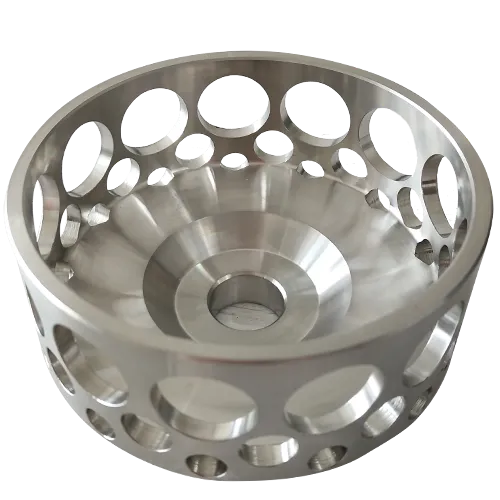Mobile:+86-311-808-126-83
Email:info@ydcastings.com
Understanding the Mechanism and Applications of Centrifugal Impeller Pumps in Fluid Dynamics
Understanding Impeller Pumps in Centrifugal Applications
Centrifugal pumps play a vital role in various industries, particularly in transporting fluids efficiently. Among the many components of these systems, the impeller is the heart of the pump, crucial for converting rotational energy into fluid movement. This article explores the function, design, advantages, and applications of impeller pumps in centrifugal systems.
What is an Impeller?
An impeller is a rotating component that consists of a series of blades or vanes. When the impeller spins, it imparts kinetic energy to the fluid, causing it to flow from the center outwards. The conversion of rotational energy into fluid motion is fundamental to the operation of centrifugal pumps. Impellers can vary significantly in design depending on the specific application and the characteristics of the fluid being pumped.
Types of Impellers
1. Open Impellers These consist of a set of blades that are not enclosed by a casing. Open impellers are effective in handling fluids containing solid particles because they minimize blockage and allow for easier passage of solids.
2. Closed Impellers In contrast, closed impellers consist of blades between two covers. This design is highly efficient and is typically used for clear fluids, providing better pressure and flow characteristics.
3. Semi-Open Impellers These are a hybrid design between open and closed impellers. They provide some protection for the blades while also allowing for the passage of solids, making them versatile for various applications.
How do Impeller Pumps Work?
The operation of an impeller pump begins with the motor driving the impeller, which spins rapidly. As the blades turn, they create a low-pressure area at the impeller's eye, drawing fluid in. The fluid is then accelerated outward by the blades, gaining velocity. As the fluid exits the impeller, it enters a diffuser or volute, converting kinetic energy into pressure energy. This transformation allows the fluid to be transported efficiently through pipes to its desired destination.
Advantages of Centrifugal Impeller Pumps
impeller pump centrifugal

1. High Efficiency Impeller pumps offer high efficiency in converting energy into fluid flow, making them ideal for many applications.
2. Versatility They can handle a wide range of fluids, including water, chemicals, and slurries, with varying viscosity and densities.
3. Simple Design The relatively simple design of centrifugal pumps and their components allows for easy maintenance and repair. This simplicity also contributes to lower manufacturing costs.
4. Consistent Flow Rate Centrifugal impeller pumps provide a steady and continuous flow, which is essential in processes that require consistent delivery of fluids.
5. Scalability These pumps come in various sizes and configurations, making them suitable for small-scale applications, like residential water supply, as well as large industrial uses.
Applications of Impeller Pumps
Impeller pumps find widespread use across various sectors. In the water treatment industry, they are essential for moving water through filtration systems and maintaining circulation. In agriculture, they facilitate irrigation processes, ensuring the efficient distribution of water to crops.
In the chemical and pharmaceutical industries, impeller pumps enable the handling and processing of various fluids while maintaining cleanliness and preventing contamination. Additionally, they are used in HVAC systems for circulating water and in oil and gas applications for handling crude oil and other fluids.
Conclusion
Impeller pumps are a cornerstone in the world of fluid transportation, particularly within centrifugal applications. Their efficiency, simple design, and adaptability to different fluids make them indispensable in various industries. Understanding the mechanics and types of impeller pumps can aid engineers, operators, and businesses in selecting the right pump for their specific needs, ensuring optimal performance and reliability in their fluid handling processes. As technology evolves, further advancements in impeller pump design promise even greater efficiencies and capabilities, paving the way for innovative applications in the future.
-
Why Should You Invest in Superior Pump Castings for Your Equipment?NewsJun.09,2025
-
Unlock Performance Potential with Stainless Impellers and Aluminum End CapsNewsJun.09,2025
-
Revolutionize Your Machinery with Superior Cast Iron and Aluminum ComponentsNewsJun.09,2025
-
Revolutionize Fluid Dynamics with Premium Pump ComponentsNewsJun.09,2025
-
Optimizing Industrial Systems with Essential Valve ComponentsNewsJun.09,2025
-
Elevate Grid Efficiency with High-Precision Power CastingsNewsJun.09,2025











